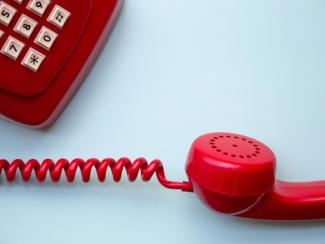
Lyndon Johnson’s presidential administration appointed a National Advisory Commission on Civil Disorders, or the Kerner Commission, after the long, hot summer of 1967.
What resulted from that shapes policing as we know it today: 911.
The U.S. already had a universal emergency services number in Venezuela, centralizing police forces and surveilling “militant groups.” That inspired discussion with the Federal Communications Commission and AT&T to make it happen in the U.S. too.
But this wasn’t the first time a U.S. number was suggested.
Years prior, the idea was introduced to handle emergencies like robberies, accidents, and fires. But the Kerner Commission presented 911 as a way for police to crush Black resistance with even more speed, force, and arrests.
On February 16, 1968, a congressman ceremonially answered the first 911 call at Haleyville, Alabama’s police station. Also present was the man who approved the new system: Eugene “Bull” Connor, the Public Service Commission director and an avowed segregationist known for turning fire hoses, billy clubs, and police dogs on civil rights activists.
By 1999, 911 was formally universal across the U.S. And the legacy of that first call remained.
We can’t know how many more ways the system will find to expedite our deaths. But 911 was a response to our powerful Black resistance. Just remember that as our movements grow more organizations, police alternatives, and new forms of resistance, our liberated future is still within reach come what may.